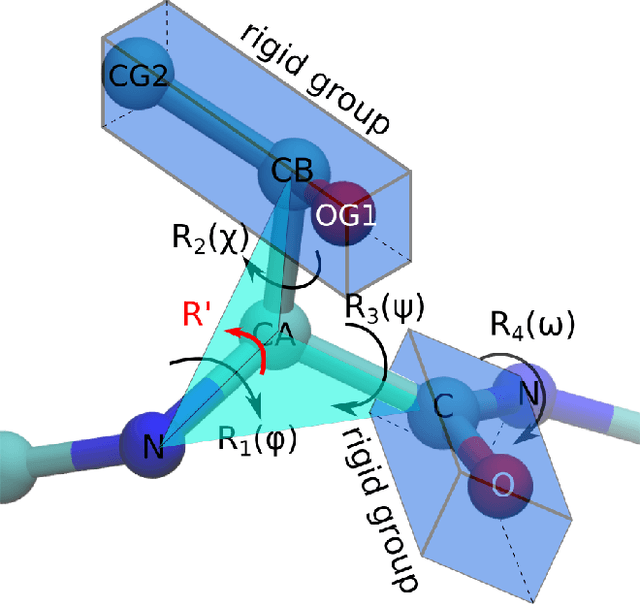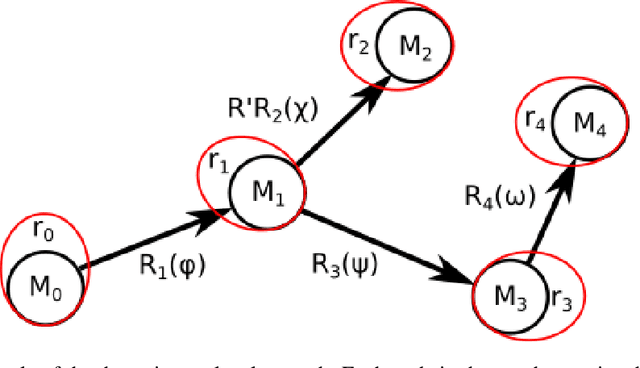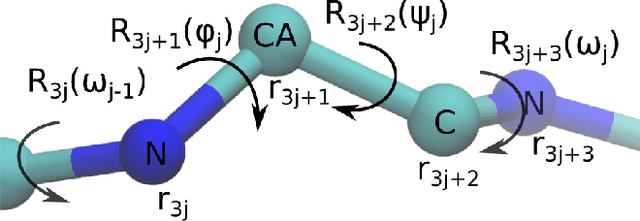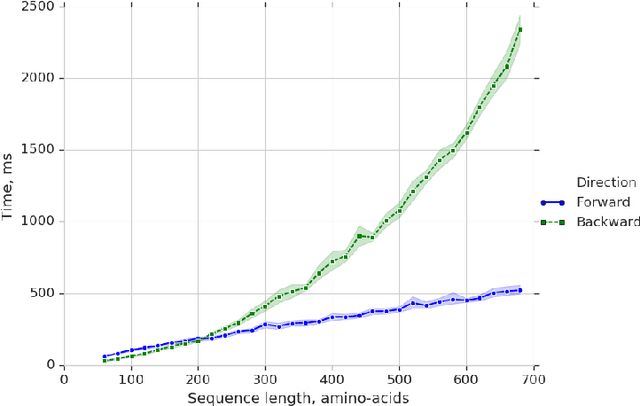Guillaume Lamoureux
Dock2D: Synthetic data for the molecular recognition problem
Dec 07, 2022



Abstract:Predicting the physical interaction of proteins is a cornerstone problem in computational biology. New classes of learning-based algorithms are actively being developed, and are typically trained end-to-end on protein complex structures extracted from the Protein Data Bank. These training datasets tend to be large and difficult to use for prototyping and, unlike image or natural language datasets, they are not easily interpretable by non-experts. We present Dock2D-IP and Dock2D-IF, two "toy" datasets that can be used to select algorithms predicting protein-protein interactions$\unicode{x2014}$or any other type of molecular interactions. Using two-dimensional shapes as input, each example from Dock2D-IP ("interaction pose") describes the interaction pose of two shapes known to interact and each example from Dock2D-IF ("interaction fact") describes whether two shapes form a stable complex or not. We propose a number of baseline solutions to the problem and show that the same underlying energy function can be learned either by solving the interaction pose task (formulated as an energy-minimization "docking" problem) or the fact-of-interaction task (formulated as a binding free energy estimation problem).
TorchProteinLibrary: A computationally efficient, differentiable representation of protein structure
Nov 23, 2018



Abstract:Predicting the structure of a protein from its sequence is a cornerstone task of molecular biology. Established methods in the field, such as homology modeling and fragment assembly, appeared to have reached their limit. However, this year saw the emergence of promising new approaches: end-to-end protein structure and dynamics models, as well as reinforcement learning applied to protein folding. For these approaches to be investigated on a larger scale, an efficient implementation of their key computational primitives is required. In this paper we present a library of differentiable mappings from two standard dihedral-angle representations of protein structure (full-atom representation "$\phi,\psi,\omega,\chi$" and backbone-only representation "$\phi,\psi,\omega$") to atomic Cartesian coordinates. The source code and documentation can be found at https://github.com/lupoglaz/TorchProteinLibrary.
 Add to Chrome
Add to Chrome Add to Firefox
Add to Firefox Add to Edge
Add to Edge